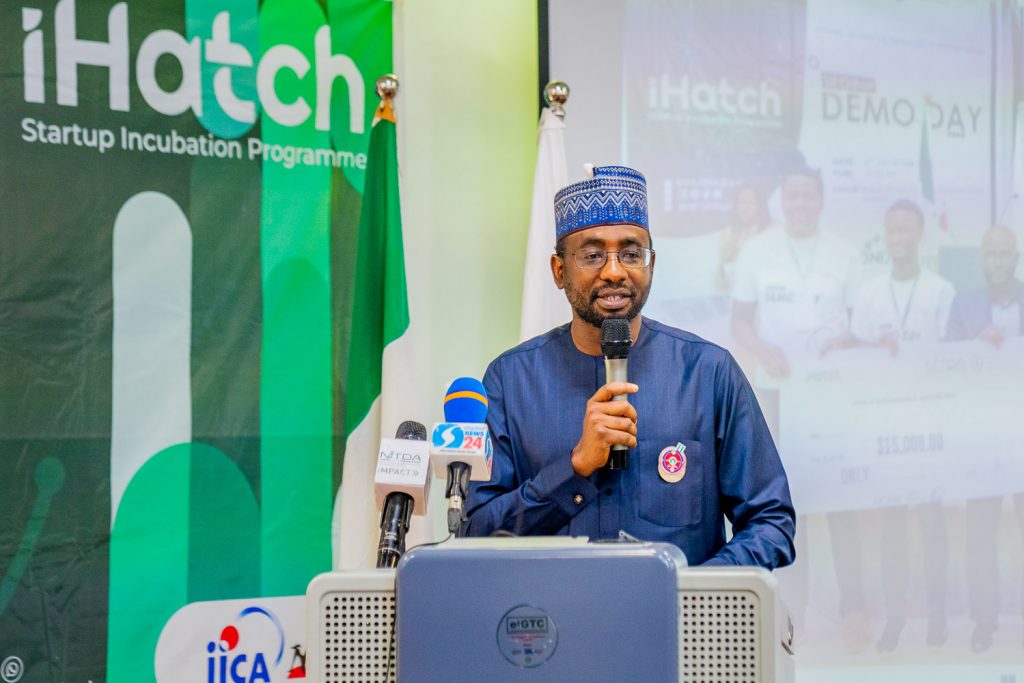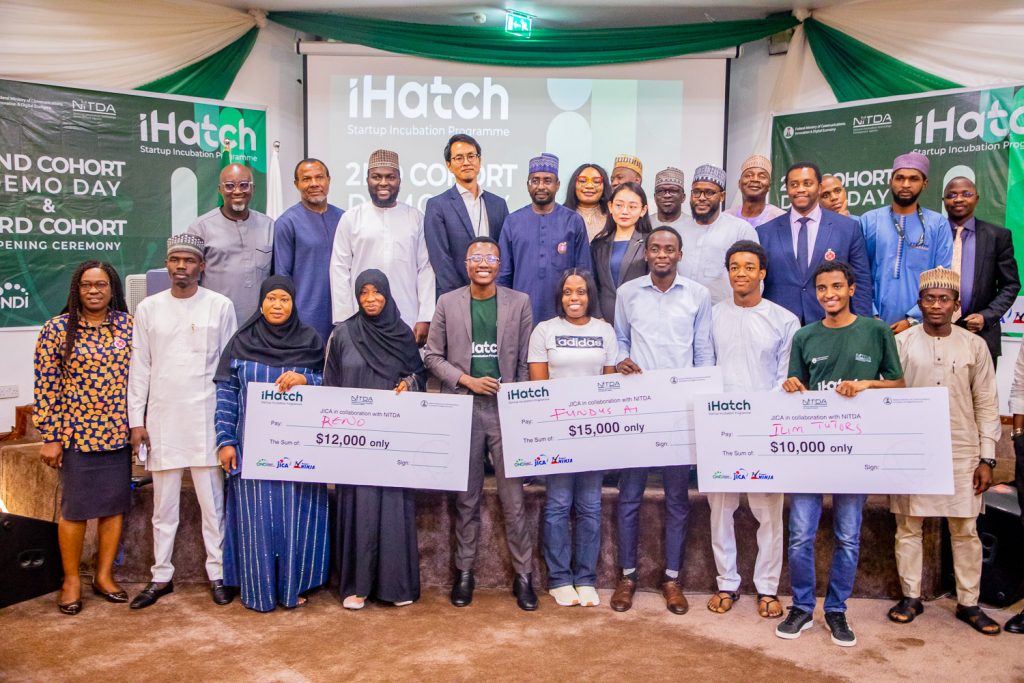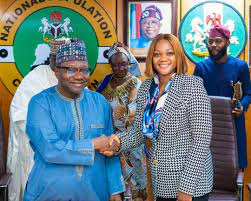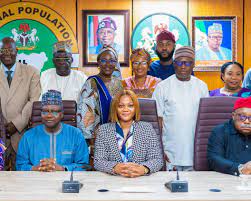Opinion
THE IMPERATIVE OF FEDERAL MINISTRY OF DIASPORA AFFAIRS IN TINUBU ADMINISTRATION
Published
1 year agoon
By FEMI ODERE
It’s indeed a sad observation that what passes as development as we know it happened despite Nigeria’s brimming human capital endowment that has always been coveted by developed countries around the world. It’s also a sad commentary that the country’s political leaders have failed woefully to galvanize the talents and resourcefulness of the Nigerian people for sustainable development.
Of all the inability, if not failure of our political leaders to circle the country’s development wagon around the people, perhaps one of the most disappointingly depressing of these failures has been the exclusion of Nigerians in the diaspora (in real and practical terms) in the nation’s developmental matrix despite several data that has proven that this highly credentialed and resource-endowed critical mass is the bedrock of development in any given society.
Thus, our leaders’ inability to properly situate the diaspora piece on the country’s development puzzle will continue to stunt the nation’s growth, especially in an increasingly globalized world where competition for human and material resources has never been more intense which the fungibility of knowledge happens to be the driving force of this intensity.
To be sure, there has never been a time in the history of the country’s electioneering campaigns that a presidential candidate gave prominence to Nigerians in the diaspora and the opportunity to be actively involved in the electoral process than the creation of a Diaspora Directorate by the Presidential Campaign Council of now president-elect Asiwaju Bola Ahmed Tinubu.
There also has never been a time that a critical mass of Nigerians in the Diaspora was so enthusiastic in supporting a candidate’s presidential aspiration as they did with then-candidate Asiwaju Bola Ahmed Tinubu to the extent that they donated themselves, time, energies, and materials to the campaign.
The political capital that has accrued to the president-elect Asiwaju Bola Ahmed Tinubu from Nigerians in the diaspora and their readiness to holistically participate in the nation’s development as never before should, as a matter of urgency, if not priority, be translated and converted to a veritable mechanism for national rebirth and economic growth.
While there’s every indication that the president-elect will actively court the expertise and harness the resources of the Nigerian diaspora community with deliberate intensity, a good starting point in this quest is the creation of a full-fledged Federal Ministry of Diaspora Affairs.
In lieu of when diaspora voting would become manifest in the nation’s body politic—-which is the political component of their overarching desire to participate in the country’s development—-the shortest route by the incoming Tinubu government to addressing the multifarious socio-economic challenges it will inherit in a few months—-some of which are quite unprecedented but not insurmountable—-the establishment of a diaspora ministry is the next best thing. The ministry, as part of its core mandates, would interface the diaspora community with the three arms of government on the one hand, government MDAs for capacity building and enhancement, and resource allocation for overall national development on the other.
The argument for a full-fledged federal ministry for the country’s diaspora community can be predicated on three key empirical factors; and these are population, literacy, and financial endowment by way of remittances.
Although a very close approximation of the Nigerian population in the diaspora may be difficult to ascertain due to a lack of up-to-date data and illegal migration, according to the United Nations Department of Economic and Social Affairs, Nigeria had a Diaspora population of 1.7 million people as far back as 2017. While this figure can be used as a base measurement to advance an argument, it’s chronically on the low ebb of the population scale because of the spike in the emigration of Nigerians from their country of birth since the year in which the data was issued.
What’s more, it can also be said without any fear of contradiction that Nigerians who migrated illegally to different countries of the world probably surpass those whose migration was done within the confines of the laws of their host countries.
Aside from this outdated UN population data on diasporic Nigerians, data from other sources estimate that the diaspora population is between 15 and 17 million people. This is a staggering population.
Even if one is compelled to use the 1.7 million UN data baseline, the fact remains that the Nigerian diaspora population is still far more than the population of about 30 countries of the world including Brunei, Suriname, Luxembourg, and Montenegro just to mention a few.
However, the 15 million population data from other sources also means that the Nigerian diaspora population outshines more than the population of 100 countries of the world including—-in no particular order—-the Republic of Guinea, Rwanda, Tunisia, Belgium, Jordan, the Dominican Republic, Sweden, Greece, Portugal, Hungary, the State of Israel, Switzerland, Austria, Hong Kong, Denmark, Finland, and Lebanon and a host of other countries.
From the foregoing, therefore, the Nigerian population in North America, Europe, Asia, and the Middle East, not to say the African continent, conveniently passes for a nation that would automatically be accorded its rightful place in the comity of nations and global institutions.
Nigerians in the diaspora are hardly liabilities to their host or adopted countries even with their illegal status as they are mostly hardworking. They are a successful population that contributes in no small measure to the GDP of their host countries because they have the highest literacy rate among immigrants from other developing and underdeveloped countries.
According to the Financial Times, in the United States where there is a higher concentration of Nigerians in the diaspora among the developed countries, Nigerians are the most highly educated of all groups, with 61 percent holding at least a bachelors degree compared with 31 percent of the total foreign-born population and 32 percent of the US-born population.
The publication went further in its analysis that, “more than half of Nigerian immigrants (54 percent) were most likely to occupy management positions, compared with 32 percent of the total foreign-born population and 39 percent of the US-born population. Similar Nigerian literacy successes are reflected in the UK, “where many highly-educated diaspora works in financial services, IT, and the legal and medical professions among other high-end professions.
A reasonable deduction can then be made that if the population of Nigerians in the diaspora is so significant that it can constitute a country with its high literacy rate, it goes without saying that they would be imbued with higher incomes which would translate into increased financial receipts for their country. And this is where their remittances come in.
According to World Bank data, as of 2018, the Nigerian Diaspora remittance was $24.31bn; it dropped to $23.81bn in 2019 and in 2020 it fell to $17.21bn. This means that the Nigerian Diaspora population remitted $65.34bn in three years to boost economic activities in their country of birth.
At the US-Africa Leaders Summit on December 13-15, 2022 in Washington, D.C President Muhammadu Buhari said while addressing a town hall meeting of his country’s citizens that, “Nigerians in the diaspora remitted more than 20 billion dollars in 2021.” The president added that in this same year, “our diaspora home remittances through official channels stood at 20 billion dollars which is four times more than the value of our Foreign Direct Investment.”
Please pay attention to the “through the official channel” phrase by the Nigerian President. This phrase implies that the amount remitted to Nigeria in 2021 was certainly far more than 20 billion dollars. But because there’s no mechanism with which to record the remittances from the unofficial channels hence the $20 billion figure. And these unofficial channels are multifaceted.
Aside from the fact that diaspora remittances have in most cases been recorded as significantly more than the country’s oil receipts, it should also be recalled that the remittances of Nigerians in the diaspora were the most significant foreign receipts that kept the Nigerian economy afloat during the COVID-19 pandemic that lasted for more than a year.
From all development indicators, Nigeria is still classified as an underdeveloped country. There is therefore no excuse for an underdeveloped economy such as Nigeria not to have had a Ministry that’s solely dedicated to its diaspora given the aforesaid when ‘first world’ economies such as the State of Israel and South Korea have cabinet-level diaspora ministries.
Other countries with stand-alone ministries for their diaspora citizens, although with different nomenclatures include Armenia, Azerbaijan, Egypt, Georgia, Ghana, Indonesia, India, Jamaica, Morocco, and Senegal to name just a few.
One hopes that the creation of the United States Diaspora Advisory Council by the Biden administration—-the first of its kind in US history—-is not another strategic, long-term national interest to put the African continent in a sleep mode now that there’s an increasing number of the African diaspora in the cabinet position as well as the policy environment of the US government. Barring this conjecture, this is an opportune time for Nigeria to actively engage its diaspora citizens to positively influence the policies of developed economies toward Africa.
It should be stressed that the Nigerians in Diaspora Commission (NiDCOM) which is currently spearheaded by Hon. Abike Dabiri-Erewa would most likely have been moribund by now if not for her personal exertion and exemplary leadership quality because the commission was erroneously subsumed—-perhaps deliberately so to make it ineffectual—-in the domain of a pathetically uninspiring and lethargic foreign affairs minister who could not craft any futuristic and development-driven foreign policy objectives in his eight years in office. If Nigeria must play in the big league of the global diaspora network that’s currently unfolding before our own eyes in the race for resource mobilization from all angles, then the country needs not only a Diaspora ministry but an indefatigable personality of cabinet rank to push its diaspora envelope.
In conclusion, considering the enormous socio-economic challenges that the incoming Tinubu government will inherit and the fact that some fundamental changes must be made not only to the country’s structure but also its governance system for superlative performance as well as meeting the people’s expectations, the establishment of a Federal Ministry of Diaspora Affairs is sine qua non to the realization of the Tinubu administration’s economic objectives and development aspirations.
Nigerians in the diaspora have demonstrated the wherewithal to positively affect the development of an underdeveloped economy like Nigeria as they have done—-and continue to do—-in their host countries around the world. The time to deliberately and strategically include them in the nation’s development paradigm is now. Anything short of this move would not only be counter-intuitive but would be patently uncivilized.
Femi Odere was the former Senior Special Assistant to former Governor Kayode Fayemi of Ekiti State on Diaspora Affairs. He was the Chairman of States’ Diaspora Focal Point Officers and former Head of Media and Publicity at the Diaspora Directorate, APC PCC. Femi Odere lives in Iropora-Ekiti and he can be reached at femiodere@gmail.com
You may like
Opinion
IHATCH: JAPAN GOVERNMENT TASK TO LEVERAGE NIGERIA’S YOUTHFUL POPULATION- DG NITDA
Published
5 months agoon
December 3, 2023
By James Ishaku
As part of the current administration of President Bola Tinubu’s commitment towards creating meaningful opportunities for Nigerian youths, the Director General Of the National Information Technology Development Agency (NITDA), Kashifu Inuwa CCIE has called on the government of Japan to leverage on the youthful population through strategic talent partnership that will nurture and build a workforce that can be exported.
The DG made the call at the Ihatch startup incubation programme 2nd cohort demo day and 3rd cohort opening ceremony organised by the subsidiary of the agency, Office for Nigerian Digital Innovation (ONDI), in partnership with Japan International Corporation Agency (JICA) in Abuja.
Inuwa noted that the ihatch 5-month free intensive incubation programme executed by the ONDI and hosted within the National Centre for Artificial Intelligence and Robotics (NCAIR) is designed to help Nigerian tech entrepreneurs refine their business ideas through a series of coaching, lectures, and booth camps to develop scalable and adaptable business models that willfocus on youth, innovation, entrepreneurship, and technology.
He added that the incubation programme will be held simultaneously in Abuja, Lagos, Port Harcourt, Gombe, and Kano and JICA has agreed to extend the Fourth Cohort across each of the 36 States and the FCT. This is to enable wider reach and to stimulate the startup ecosystems across the States.
The DG stated that not fewer than 1,218 applications were received for the Second Cohort and the number was pruned down to 8 startups, comprising 16 persons, a Founder and Co-Founder for each startup, after undergoing levels of rigorous selection process conducted by a panel of judges, comprising experts in diverse areas of technology and innovative entrepreneurship.
He explained that the selection process assessed the startups’ ideas based on the criteria of profitability, scalability, social impact, idea technique, competitive advantage, experience, and a clearly defined future roadmap.
Inuwa further revealed that a total of 11,183 applications were received from across the 6 geopolitical zones for the Third Cohort. This culminated in the selection of the top 8 startups, comprising 16 founders in total that will participate in the Third Cohort that was launched.
He added that 16 startups that participated in the first and second cohorts of the iHatch incubation programme have moved on to achieve remarkable success in the areas of job creation, funding, participation in events, and valuable partnerships which have created a combined total of 179 direct jobs in the span of agriculture, health, education, and e-commerce sectors.
The DG further asserted that apart from the total grant of US$45,000 (US$15,000 each) for Proof of Concept (POC) to the top 3 startups in the first cohort, some of the startups have raised some funding through other sources. Xolani Health (a health tech startup from the first cohort) secured a grant worth US$155,000, BetaLife (a health tech startup from the first cohort) secured an angel investment of US$60,000, Gifty (an e-commerce startup from the second cohort) got a grant of USD$8,000 while two other startups from the first and second cohorts respectively, raised a combined total grant of US$6,000.
Inuwa affirmed the agency’s commitment to working with relevant stakeholders and partners towards the successful implementation of the Nigeria Startup Act (NSA) which will accelerate innovation and provide much-needed jobs for our teeming youths. Leaving nothing to chance in our resolve to nurture the entrepreneurial spirit in our youth to catalyze the Nigerian digital economy to the next level.
The Honourable Minister, Federal Ministry of Industry, Trade and Investment, Doris Nkiruka Uzoka-Anite, represented by National Coordinator, National Talent Export Programme, Dr Femi Adeluyi, applauded NITDA for the various initiatives and programs put in place for the advancement of the tech ecosystem in the country.
Anite noted that the NITDA DG at the Digital Nigeria International Conference 2023 edition harped on the need for Nigeria to become the talent destination of the world where countries will come to seek a workforce that will work with them towards achieving their goals and objectives.
She added that “technology is a pivotal tool in all aspects of life which cannot be overemphasized and the green transition scoreboard global total has reached about $7.13 trillion for export and about $6.6 trillion for importation, the important aspect is that 54% of these activities is digitally edible and prepares people to be effective and efficient in the different sector of the economy is laudable”.
The Minister also appreciated JICA for its relentless efforts toward the advancement of the tech ecosystem in the area of automobile, development, training, scholarships, interventions and a lot more which has impacted the citizens directly or indirectly.
The Ambassador of Japan to Nigeria, Matsunaga Kazuyoshi, represented by Yuzurio Susumu Chief of Nigeria Office in his remarks stated that Nigeria is the most popular country in Africa and the heart hub of entrepreneurship activities aimed towards the advancement of the country.
He added, “With all the challenges faced by insecurity, and limited infrastructures in the country, Nigerian startups are demonstrating remarkable creativity and resilience in developing solutions that other critical social issues in areas such as education, transportation, healthcare and finance”.
He added that the present administration has identified the transformation potential of startups and digitization making it a key factor in diversifying the Nigerian economy from its dependence on oil.
The Ambassador pointed out that startups are seen as a catalyst for business transformation, bringing fresh ideas, innovative technologies and new employment opportunities. Japan has the longest history of technological innovation and entrepreneurship has a significant role in supporting the Nigerian system.
Among those who attended were representatives from both the private and public and the top three (3) startups emerged with cash prices to Fundus AI 1st postion $15,000.00, Reno 2nd postion with $12,000.00 and Ilim Tutors 3rd postion $10,000.00 respectively.
Coker – Odusote: 100 Days at the Helm of NIMC
By Walter Duru, Ph.D
It was Albert Einstein that once said that “setting an example is not the main means of influencing another, it is the only means.” That sentiment expressed by Einstein is the primary essence behind the theory of transformational leadership, which requires passion, charisma, and the ability to motivate others. Transformational leaders are usually very authentic, emotionally intelligent, great listeners, results-focused, visionary, and self-aware.
In just 100 days at the helm of the National Identity Management Commission (NIMC), Engr. Abisoye Coker-Odusote has ushered in a new era of transformational leadership, leaving an indelible mark on the organization. Her eventual confirmation as substantive Director General/Chief Executive Officer of the Commission did not come to many as a surprise.
She did not waste time to hit the ground running and showed commitment to advancing the NIMC’s mission and mandate.
Coker-Odusote has taken steps to streamline National Identity Number (NIN) registration processes, while addressing the long-standing challenges associated with identity registration in Nigeria. This, she is handling through strategic restructuring and the integration of advanced technologies with a view to significantly reduce waiting time and enhance the overall efficiency of the system.
Today, date of birth and other kinds of modifications at NIMC happen within 48 hours. The several years backlog of date of birth modifications she inherited are almost cleared, as she had given a one-month deadline for the same to relevant staff of the Commission.
Again, responses to issues and complaints, such as those whose National Identity Numbers did not hit the NIN Verification Portal are now resolved within 24 hours.
Recognizing the paramount importance of data security in the digital age, the NIMC CEO has taken steps to enhance data security by introducing robust measures to fortify the protection of citizens’ sensitive information. This includes, but not limited to the adoption of cutting-edge encryption technologies and the establishment of a dedicated cybersecurity team.
Her interest in improving service delivery at NIMC cannot be overemphasized. She has concluded plans to ensure regular training and retraining for staff of the Commission, emphasizing customer-centric approaches, to ensure a more positive experience for citizens seeking identity services.
On partnerships, Coker-Odusote, leveraging her extensive network and expertise, has forged strategic partnerships with governmental agencies, private organizations, and international bodies. These collaborations aim to enhance the NIMC’s capacity, foster innovation, and promote information sharing for the betterment of identity management.
Understanding the pivotal role of technology in modernizing identity management, Engr. Coker-Odusote has spearheaded the integration of biometric advancements and artificial intelligence into the registration and verification processes.
This not only improves accuracy, user experience and ease of enrolment, but also positions NIMC at the forefront of technological innovation in identity management. A typical example is the NIMC Contactless Biometric Solution, which delivers a best-in-class fingerprint and facial capture image output quality, powered by Artificial Intelligence. The new solution was unveiled by the commission at the 2023 Identity Day, held in Abuja on September 16, 2023.
In addition, Engr. Coker-Odusote tackled the existing backlog of unprocessed identity requests head-on. Through a combination of strategic staff deployment and redeployment, process optimization, and digitization initiatives, she has made significant strides in clearing the backlog, demonstrating her commitment to prompt and efficient service delivery.
Recognizing the crucial role played by the NIMC staff in achieving organizational goals, the CEO has developed for implementation, a robust welfare programme aimed at boosting morale and fostering a positive work environment. This includes, but not limited to training opportunities, health benefits, and performance recognition initiatives.
Furthermore, in consultation with in-house experts, elaborate public awareness campaigns are being planned, to ensure that citizens are well-informed about the importance and benefits of identity registration. These campaigns are expected to not only educate the public, but also serve to demystify the registration process, encouraging greater participation.
The NIMC DG has concluded plans to take the ecosystem enrolment forward by taking steps to deepen collaboration with ecosystem implementing partners, supporting to ensure the success and optimal performance of the Nigeria Digital Identification for Development (ID4D) Project, a Nigerian Project jointly funded by The World Bank, The European Investment Bank, and the French Development Agency.
Engr. Coker-Odusote’s strategic vision, commitment to efficiency, and emphasis on technological innovation positions NIMC for a future where identity management is not only secure but also seamlessly integrated into the daily lives of citizens.
On anti-corruption, the NIMC DG has left no one in doubt on her determination to sanitize the system, entrench a culture of transparency and zero tolerance for corruption. Apart from putting systems and structures in place to discourage graft, she is directly involved in ensuring that the cankerworm has no place in the commission.
Just recently, in what one may describe as a sting operation, she paid an unscheduled visit to the Federal Capital Territory office of the commission, where she is reported to have arrested some staff for allegedly extorting money from Nigerians, even as she has maintained that enrolment was free.
Her devotion to supporting the policy direction of the present administration by strengthening the issuance of the NIN for access to service is not in doubt.
Speaking on Coker-Odusote’s first 100 days in office as NIMC CEO, Project Coordinator, Nigeria Digital ID4D Project, Musa Odole Solomon described her as a vibrant, results-focused leader, determined to make a difference in the Commission.
“She has taken steps to build bridges of collaboration between NIMC and partners within the country’s identity ecosystem. These collaborations aim to enhance the NIMC’s capacity, foster innovation, and promote information sharing for the betterment of identity management in Nigeria.”
“The collaboration is also focused on enhancing handshake with institutions involved in the country’s identity ecosystem, with a view to deepening integration with the country’s Identity Management System.”
“In 100 days, she has taken the lead in working with the Nigeria Digital ID4D Project to speed up project implementation process, especially, processes geared towards the extension of NIN enrolment to hard-to-reach areas, women, persons with disabilities, and marginalized groups, thereby fostering inclusion and access to social services.”
“She has introduced some innovations that I consider very progressive, and things are moving very well. The Nigeria Digital ID4D Project is happy to work with her, as she has shown that she has all it takes to assist us succeed.”
Responding to a question on his impression about the NIMC DG’s leadership style and the future of the relationship between NIMC and his organisation, Chairman, National Population Commission (NPC), Hon. Nasir Isa Kwarra stressed that the relationship between NIMC and NPC has become more robust under Coker-Odusote’s leadership as NIMC CEO.
“I want to say that the National Population Commission has a long and robust collaborative partnership with the National Identity Management Commission (NIMC) in our efforts to harmonize and integrate biometric databases for planning and development of our country.”
“However, this partnership has become more dynamic and robust with the assumption into office of Engr. Abisoye Coker-Odusote as the Director General of NIMC. She has shown an unparalleled commitment and passion in working with the Commission, not only in registration of births and deaths, but also the upcoming population census. She comes across as a thoroughbred professional and innovator who will give Africa’s greatest nation a deserved identity profile for national unity, security, and development. I am more confident in the future of the Identity Management Commission under her.”
Responding to a question on the new grounds covered at the NIMC ICT, Director, IT/Identity Database of the Commission, Chuks Onyepunuka has this to say:
“Our DG is pragmatic, proactive, result-oriented and visionist. Her achievements in ICT in NIMC in the last 100 days include, but not limited to: “launching of self-modification and enrolments services to ease and simplify the processes for enrolment services; driving the clearing of about 3 million backlog of enrolment records awaiting manual adjudication within 3 weeks; decentralization of operations with objectives of ensuring that we are closer to the enrolees and adequate coverage in the nooks and crannies of the country.”
“Others are improvement in the process of engaging and revalidating our Frontend Enrolment Partners (FEPs); improvement in our ICT policies, processes and procedures; resolution of 95% challenges/issues affecting our window enrolment software (Res-Web) and commenced the integration and harmonization with National Population Commission, Nigeria Immigration Service and Federal Inland Revenue Service (FIRS).”
Adding her voice, NIMC’s Director, Business Development and Commercial Services, Mrs. Carolyn Folami described the DG as a thoroughbred professional, committed to resetting the Commission for the good of the nation.
“It has been only 100 days, but it seems she has been here far longer, as within this period, we have achieved a couple of goals towards resetting the NIMC agenda and resettling the NIMC staff for productivity.”
“Starting with the planning and commencement of training of all staff, to the commitment to all Front-End Partners (FEP) to revalidate the business model for fair play and payment. She is very keen on stakeholder engagement and has secured the buy- in of our harmonisation partners for effectiveness. She is professional, thorough, dedicated, and above all, kind to all.
Adding his voice, Monitoring and Evaluation Specialist, Project Implementation Unit, Nigeria Digital ID4D Project, Dr. Emmanuel Akogun argued that Coker-Odusote’s first 100 days in office were characterised by “dynamic, focused and results – oriented leadership,” adding that there is steady progress in NIN enrolment, with “103,500,000 Nigerians and other legal residents captured in the NIMC Database.”
There is therefore no gainsaying the fact that Engr. Abisoye Coker-Odusote’s first 100 days as CEO of the NIMC have been marked by a series of commendable achievements.
At this point, one can confidently say that with Engr. Bisoye Coker-Odusote as Chief Executive Officer, NIMC is in safe hands.
Her recent confirmation as substantive Director General/CEO of the Commission is clearly an act of patriotism by the Nigerian President, Bola Ahmed Tinubu.
However, as she commences a full tenure of office, following her recent confirmation, one expects that the standard is not lowered.
As she marks 100 days in office this week, the most challenging part of Abisoye Coker-Odusote’s journey as Chief Executive Officer of the NIMC is the need to sustain the successes recorded, remain focused, deepen stakeholder engagement and public enlightenment, check corruption, strengthen systems and structures, be fair to all, while supporting the policy direction of the present administration.
Deliberate steps must be taken to ensure the sustenance of the war against extortion at NIMC.
Again, a deliberate plan should be in place to ensure a more robust stakeholder collaboration, particularly with those involved in the country’s identity ecosystem.
Elaborate, sustained communication and public enlightenment activities are required, taking advantage of the conventional and unconventional channels of communication to inform, educate and mobilize the citizens on the need for all to register for the NIN. This requires a deliberate strategy and strategic implementation.
Finally, a deliberate inclusion strategy must be in place and vigorously implemented to ensure that no one is left behind.
As the DG continues to lead with passion and purpose, NIMC is poised for even greater accomplishments under her guidance.
Indeed, NIMC is in safe hands!
Dr. Walter Duru (Assistant Professor of Communication and Multimedia Design) is a Communication/Public Relations Strategist, Researcher and Consultant. He could be reached on walterchike@gmail.com
Opinion
Telecoms: Operators seek strict harmonised RoW charges
Published
5 months agoon
November 25, 2023AJAGBE ADEYEMI TESLIM
SPONSORED BY: H&H
Telecom operators have urged the federal government to make a policy that will make the charges on the Right of Way (RoW) uniform across the country.
According to them, the issue of RoW has been a major challenge hindering the deployment of telecom infrastructure while the infrastructure is vandalised in some areas.
Right of Way charge is a levy paid by telecommunication companies to state governments, permitting telecommunication companies to dig up the roads and install telecommunications hardware such as optic fibre cables that carry internet traffic.
The Right of Way charge has been fraught with inconsistencies across the states in terms of charges and has negatively impacted broadband infrastructure.
To harmonize the Right of Way charges for broadband infrastructure investment, the Federal Government, in 2017, through the National Executive Council (NEC), approved a policy, which resulted in a RoW Charge Agreement reached with all the governors of the 36 states of Nigeria.
However, the RoW Charge Agreement is yet to be fully adopted by the 36 States, and in recognition of the slow uptake by the States, the former Minister of Communication and Digital Economy, Isa Pantami, on January 14 2020 in a press statement called on states to implement the harmonization of the RoW charges for obvious benefits for the sector such as deepening development/growth in broadband infrastructure, and reducing the transfer of RoW charges costs by telecommunications companies to customers.
January 2020 recorded a step in the right direction when the Nigerian Governors Forum accordingly resolved that telecommunication operators were to pay N145 (approximately $0.37) per linear metre to lay fibre cable anywhere in the country.
Meanwhile, despite these, the telecom operators have continually complained about the different charges leveled by different states for the Right of Way.
According to them, the issue of the RoW has been worrisome affecting the laying of telecom infrastructure in some states in the country.
They said this has also been the bane of telecom services in some areas, especially in the cities where people do not enjoy the services.
The operators noted that if there is harmonisation and every state in the country abides by the rule, telecom services will be everywhere across the country.
“If such policy is wrong and strict, there will be unification in the charges for the Right of Way by all the states. And even the payment will be easy. And to make the policy strong, the Federal Government must declare telecom infrastructure as national infrastructure.
Once it becomes a national infrastructure, you don’t need to talk about being paid or not being paid.
All that the telco company needs to do is to pass through the agency that is in charge. You write the agency and get your cables laid.
Except the Right of Way affects someone’s building, which is very difficult. If it affects someone’s building, that is a different thing, but if it does not, what you just need is to get approval from the agency in charge. If this is achieved, the broadband penetration we are talking about will be easily expanded,” telco operators said.
Trending
-

 News5 years ago
News5 years agoBreaking: ‘Penalty’ Crooner Small Doctor Caught in Possession of Fire Arms
-

 News5 years ago
News5 years agoTiffany Trump Is Dating a Millionaire Michael Boulos From Nigeria
-

 News5 years ago
News5 years agoPDP Set To Cause Panic Days To Polls: FG
-
News2 years ago
INEC Publish Final List of Candidates For 2022 Osun Governorship Poll
-

 News5 years ago
News5 years agoINEC Engages EFCC, FIU In Tracking Campaign Funding
-

 Politics5 years ago
Politics5 years agoPDP Alleges Plot by APC, Presidency to Detain Its Leaders
-

 Politics5 years ago
Politics5 years agoLagos Commissioner Decamps To PDP
-

 Politics5 years ago
Politics5 years agoOsinbajo Has Betrayed Yorubas, Says Afenifere










